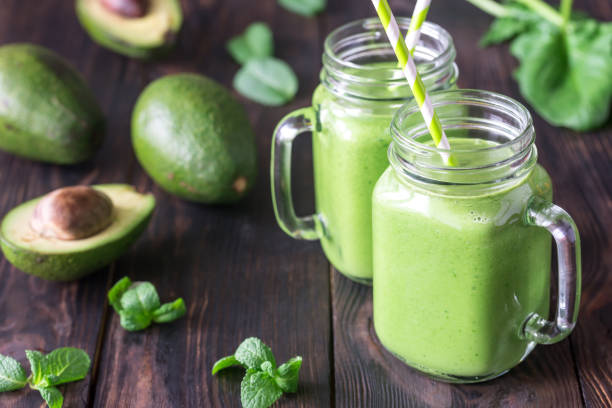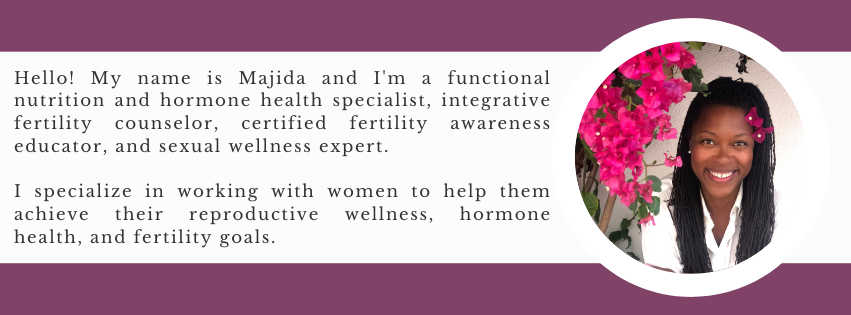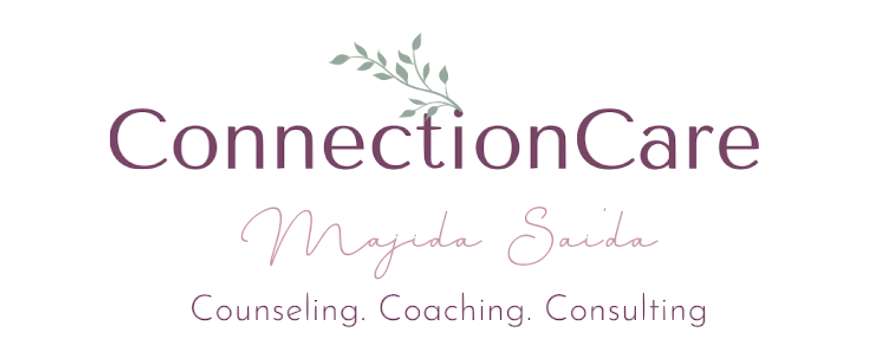You’ve probably heard of environmental toxins. Whether it’s concerns raised over what is sprayed on our foods or what is being leached into the water supply, the impact of our environment on our health has been a big topic of popular conversation. These toxins are wreaking havoc on the planet and all that exists within it, including you and me. As awareness grows about the harmful impacts of environmental toxins on our health, preconception detoxing and cleansing are becoming increasingly popular. Prospective parents are taking proactive steps to support the future wellness of their children by minimizing exposure to these harmful substances.
Today, we face exposure to environmental toxins that were unknown to previous generations. This exposure can adversely affect our reproductive and fertility health, as well as the well-being of future generations. But what exactly is preconception cleansing? It involves eliminating excess toxins from both the body and the environment before conception, helping to ensure a smoother pregnancy and the health of the baby.
Preconception cleansing goes beyond avoiding certain foods and substances; it also entails optimizing your body’s natural detoxification pathways to support overall health. In this blog post, we will discuss the ins and outs of preconception cleansing, including its reproductive benefits and supportive tips on how to get started.

Understanding Preconception Cleansing
Let’s start with the basics. What are “toxins” and what impact do they have on fertility?
Toxins are harmful substances that can accumulate in the body, disrupt hormonal balance, damage reproductive organs, and ultimately affect one’s fertility game. Common sources of toxins include pesticides, chemicals in cleaning products, heavy metals in water and food, and air pollution.
List of Common Toxins That Impact Fertility
| Toxins and Endocrine Disruptors |
Common Sources |
| Bisphenol A (BPA) |
Plastics, canned foods, receipts |
| Phthalates |
Plastics, cosmetics, personal care products, vinyl flooring |
| Perfluorinated Compounds (PFCs) |
Non-stick cookware, water-resistant coatings |
| Polychlorinated biphenyls (PCBs) |
Fish, contaminated soil and water |
| Dioxins |
Animal products (meat, dairy, fish) |
| Flame retardants |
Upholstery, electronic devices, building materials |
| Glycol Ethers |
Cleaning products, paint, varnishes |
| Atrazine |
Pesticides, herbicides, drinking water |
| Lead |
Old paint, contaminated soil and water |
| Mercury |
Fish, dental fillings |
| Organophosphate Pesticides |
Produce, insect repellents, pet flea collars |
| Parabens |
Cosmetics, personal care products |
| Triclosan |
Antibacterial soaps, toothpaste, and other personal care products |
It’s important to note that this is not an exhaustive list, as many more toxins and endocrine disruptors can impact fertility.
Thankfully, our body is amazing and has a natural detoxification process that helps eliminate these harmful substances. The liver, kidneys, and digestive system work together to break down and remove toxins from the body. Be that as it may, our bodies are regularly bombarded with more toxins today than ever, which sadly overwhelms the natural detoxification system.
This is why preconception cleansing is so powerful! It is a natural way to support the body’s detoxification process before conception. It involves eliminating toxins from the body through dietary changes, herbal supplements, and lifestyle modifications. Preconception cleansing can optimize fertility and reproductive health by reducing toxic burden and improving the body’s detoxification process.
Benefits of preconception cleansing may include:
- Improved hormonal balance
- Enhanced egg and sperm quality
- Reduced risk of birth defects
- Improved maternal and fetal health
- Increased chance of conception and healthy pregnancy
In summary, preconception cleansing is a natural and effective way to support reproductive health by reducing toxic burdens and improving the body’s natural detoxification process.
Now that you have more of an understanding of preconception cleansing and we’ve identified the toxins that impact fertility, it’s important to discuss why it is necessary. By removing harmful toxins and supporting the body’s natural detoxification process, preconception cleansing may improve fertility, reduce the risk of birth defects and complications, and improve overall health and well-being.
In the following section, we will explore the numerous benefits of preconception cleansing and how it can support reproductive health for both mother and baby.
Why Preconception Cleansing is Important
Preconception cleansing plays a crucial role in enhancing reproductive health and boosting fertility. It effectively removes toxins that can hinder fetal development, ensuring a safer and more supportive environment for your baby to grow. Additionally, this practice may help minimize the risk of birth defects and pregnancy complications, providing a stronger foundation for a healthy pregnancy.
Research has shown that preconception cleansing can positively influence epigenetics, the study of how changes in gene expression can occur without changes to the DNA sequence. This means that preconception cleansing may have lasting effects on the baby’s health well beyond their time in the womb.
Furthermore, preconception detoxing can also improve overall health and well-being. When the body is free of toxins and impurities, the reproductive system can function optimally, boosting fertility.
Removing toxins and impurities through preconception cleansing can also help balance hormones and reduce inflammation, critical key factors in reproductive health. By adopting a preconception cleansing routine, individuals can take control of their reproductive health and increase their chances of conception.
With the basics covered, let’s delve into the process. Collaborating with a functional nutrition practitioner can offer valuable guidance and support as you make dietary and lifestyle adjustments. Together, you can explore natural remedies and supplements, as well as detox methods and alternative therapies, all aimed at preparing your body for conception. In the next section, we will examine the steps involved in preconception cleansing in more detail.
The Process of Preconception Cleansing
When it comes to preconception cleansing, there are several steps that one can take to optimize their chances of a healthy pregnancy. The first step is to consult a seasoned nutritional therapist specializing in fertility and reproductive health. They can help you identify areas of your diet and lifestyle that may impact your fertility.
Working with a professional specializing in fertility and reproductive health can be incredibly beneficial when preparing for pregnancy. A practical nutrition approach focuses on the individual, considers their unique biochemical individuality, and addresses the root cause of any imbalances or health concerns.
Functional nutrition practitioners can work with individuals to create a personalized preconception plan that includes dietary and lifestyle modifications, natural remedies and supplements, and detoxification methods. They may also use functional lab testing to identify any nutrient deficiencies, hormone imbalances, or other underlying health issues that may be nightmarish for fertility.
In addition to providing a personalized plan, a functional nutrition practitioner can offer education and support throughout the preconception period. They can help individuals navigate any challenges that may arise and make adjustments to their plans as needed. This support can be especially valuable for those who may feel overwhelmed or need guidance on where to start with preconception preparation.
One of the key aspects of preconception cleansing is making dietary and nutrition changes. This may involve eliminating processed foods, increasing consumption of fruits and vegetables, and avoiding foods known to be inflammatory or allergenic. Your practitioner may also recommend specific supplements or herbs to support your reproductive health.
Working with a functional nutrition practitioner can help optimize health and fertility, increase the chances of conception, and support a healthy pregnancy and baby.
In addition to dietary changes, lifestyle changes can also play a significant role in preconception cleansing. This may include reducing stress, exercising regularly, and improving sleep habits.

Natural remedies and supplements can also be helpful in the preconception cleansing process. These include herbal teas, probiotics, and specific vitamins and minerals.
Detox methods may also be recommended for preconception cleansing, including infrared sauna therapy, dry brushing, or specific detox protocols designed to support liver and kidney function.
Finally, alternative therapies like acupuncture and massage may help support reproductive health and improve overall well-being. With the guidance of a qualified practitioner, preconception cleansing can be a safe and effective way to optimize fertility and improve your chances of a healthy pregnancy.
All things considered, preconception cleansing involves various dietary, lifestyle, and therapeutic changes to help remove toxins and boost reproductive health. However, there are several misconceptions surrounding preconception cleansing that we’d like to address.
Common Misconceptions About Preconception Cleansing
Preconception cleansing is often surrounded by misconceptions that can deter individuals from considering it. If you have any doubts, let this section put your mind at ease. We’ll address common concerns and provide the clarity you need to make informed decisions about this beneficial practice.
Misconception #1: It’s not necessary if you’re already healthy
While being healthy is an excellent foundation for preconception, even the fittest individuals can benefit from a preconception cleanse. Environmental toxins and endocrine disruptors can affect anyone, regardless of their current health status. A preconception cleanse can help ensure the body is in optimal condition to support a healthy pregnancy.
Misconception #2: It’s too extreme or difficult to follow
Preconception cleansing doesn’t have to be extreme or challenging. In fact, it can be tailored to an individual’s unique needs and preferences. A functional nutrition and hormone health practitioner can work with individuals to create a realistic and achievable plan for their lifestyle.
Misconception #3: It’s just a fad or trend
Preconception cleansing is based on the science of how toxins and impurities can impact fertility and pregnancy outcomes. While it may have gained popularity in recent years, the concept is rooted in functional medicine and has been used in some way shape or form by our most ancient human ancestors to support optimal reproductive health.
Misconception #4: Only the woman needs to consider a preconception cleanse
While it’s true that the woman’s body plays a significant role in pregnancy, it’s important to remember that the health of both partners can impact fertility and pregnancy outcomes. Preconception cleansing can benefit both partners and is a great way to support overall reproductive health.
By addressing these common misconceptions, we hope to provide a better understanding of preconception cleansing and encourage individuals to explore the potential benefits for themselves.
Barring the common misconceptions surrounding preconception cleansing, it can be a beneficial practice for both men and women to improve reproductive health. To ensure the best possible results, it’s essential to understand the do’s and don’ts of preconception detoxing.
The Do’s and Don’ts of Preconception Detoxing

When it comes to preconception detoxing, certain habits can significantly impact your reproductive health. Here are some important do’s and don’ts to consider:
Do’s:
- Consult with a functional nutrition practitioner who specializes in fertility and reproductive health for guidance and support
- Incorporate plenty of nutrient-dense whole foods, such as leafy greens, berries, and healthy fats, into your diet
- Stay hydrated by drinking plenty of filtered water and herbal teas
- Practice stress-reducing techniques, such as meditation or yoga
- Get regular exercise, such as brisk walks or low-impact workouts
- Get adequate restful sleep
Don’ts:
- Avoid processed and packaged foods, which can be high in toxins and harmful additives
- Minimize your consumption of caffeine and alcohol, which can negatively affect fertility and overall health
- Avoid smoking and exposure to secondhand smoke
- Limit your exposure to environmental toxins, such as pesticides and household cleaners
- Avoid unnecessary medications unless prescribed by your healthcare provider
Adopting these healthy habits and avoiding harmful ones can help support your reproductive health and increase your chances of conception. Remember, preconception cleansing is about creating a healthy foundation for you and your future baby.
Key Points & Conclusion
To wrap up your preconception cleansing journey, it’s essential to bear in mind some do’s and don’ts to ensure optimal reproductive health. By avoiding harmful habits and adopting healthy ones, you may significantly increase your chances of conception and reduce the risk of pregnancy complications. Let’s recap the key points and give you the motivation you need to explore preconception cleansing.
Key Points
- Preconception cleansing is the process of preparing the body for conception by removing toxins and impurities.
- Toxins in the environment, food, and personal care products can negatively affect fertility and increase the risk of birth defects and pregnancy complications.
- Preconception cleansing may improve overall health and well-being, increase conception chances, and reduce the risk of birth defects and pregnancy complications.
- The process of preconception cleansing involves consultation with a functional nutrition practitioner, diet and nutrition changes, lifestyle changes, natural remedies and supplements, detox methods, and alternative therapies.
- Common misconceptions about preconception cleansing include that it’s unnecessary if you’re already healthy, it’s too extreme or difficult to follow, it’s just a fad or trend, and only the woman needs to consider a preconception cleanse.
- Healthy habits to adopt during preconception detoxing include eating whole, nutrient-dense foods, staying hydrated, getting enough sleep and exercise, reducing stress, and avoiding alcohol and tobacco.
- Harmful habits to avoid during preconception detoxing include consuming processed foods and sugar, exposure to toxins and pollutants, and excessive exercise or weight loss.
- Preconception cleansing is essential for optimal reproductive health, and individuals should consider working with a functional nutrition practitioner to develop a personalized plan.
Conclusion
Ultimately, preconception cleansing has several benefits and zero to little drawbacks. For one, it benefits reproductive health and maximizes fertility chances for successful conception. You can support your body’s natural detoxification process and promote overall well-being by reducing exposure to harmful toxins, improving nutrition and lifestyle habits, and incorporating natural remedies and supplements.
But before you rush off to detoxify, It’s important to consult with a functional nutrition practitioner specializing in fertility and reproductive health to create a personalized plan for preconception cleansing.
It’s a common misconception that preconception cleansing is unnecessary or too extreme, but the potential benefits for both mother and baby make it worthwhile. You can optimize your chances of a healthy pregnancy and birth by adopting healthy habits and avoiding harmful ones.
Remember to prioritize self-care and support during this process, as it can be a transformative journey. Consider seeking additional resources or consulting with a healthcare professional to learn more about preconception cleansing.
In summary, preconception cleansing is a proactive step towards a healthy pregnancy and is a must-consider!
About Majida

Sources
- Barker, D. J. P., & Thornburg, K. L. (2013). Placental programming of chronic diseases, cancer and lifespan: a review. Placenta, 34(10), 841-845. https://doi.org/10.1016/j.placenta.2013.07.063.
- Block, J. H., Block, J., & Gjerdingen, D. K. (2009). Motherhood After 35: Choices, Decisions, Options. Springer.
- Dhillon, G. M. (2016). The Fertility Code: Companion Workbook: The Fertility Code: An Intimate and Informative Guide to Conceiving a Child Naturally. CreateSpace Independent Publishing Platform.
- Egbert te Velde, A., Burdorf, A., Nieschlag, E., Eijkemans, R., Kremer, J. A. M., Roeleveld, N., & Habbema, D. (2010). Is human fecundity declining in Western countries? Human Reproduction, 25(6), 1348-1353. https://doi.org/10.1093/humrep/deq085.
- Gnoth, C., Frank-Herrmann, P., & Freundl, G. (2002). Opinion: Natural family planning and the management of infertility. Archives of Gynecology and Obstetrics, 267(1), 67–71. https://doi.org/10.1007/s00404-002-0293-8.
- Lewis, R., & Lewis, M. (2011). The Infertility Cure: The Ancient Chinese Wellness Program for Getting Pregnant and Having Healthy Babies. Little, Brown and Company.
- Mima, M., Greenwald, D., & Ohlander, S. (2018). Environmental Toxins and Male Fertility. Current Urology Reports, 19, Article number: 50. https://doi.org/10.1007/s11934-018-0804-1.
- Pizzorno, J. (2018). Environmental Toxins and Infertility. Integrative Medicine (Encinitas), 17(2), 8-11. PMID: 30962779 PMCID: PMC6396757. Retrieved from https://pubmed.ncbi.nlm.nih.gov/30962779/.
- Raupp, A. (2015). Yes, You Can Get Pregnant: The Diet That Will Improve Your Fertility Now and Into Your 40s. Da Capo Lifelong Books.
- Rutkowska, A. Z., & Diamanti-Kandarakis, E. (2016). Polycystic ovary syndrome and environmental toxins. Fertility and Sterility, 106(4), 948-958. https://doi.org/10.1016/j.fertnstert.2016.08.031. PMID: 27559705.
- Sears, M. E., & Genuis, S. J. (2012). Environmental Determinants of Chronic Disease and Medical Approaches: Recognition, Avoidance, Supportive Therapy, and Detoxification. Journal of Environmental and Public Health, 2012, Article ID 356798, 15 pages. https://doi.org/10.1155/2012/356798.
- Shreeve, A. (2013). It Starts with the Egg: How the Science of Egg Quality Can Help You Get Pregnant Naturally, Prevent Miscarriage, and Improve Your Odds in IVF. Atria Books.
- Speroff, L., Fritz, M. A., & Fritz, M. A. (2018). Clinical Gynecologic Endocrinology and Infertility. Wolters Kluwer.
- Stewart, C. L., & Hall, J. A. (2022). Pregnancy preparation amongst women and their partners in the UK; how common is it and what do people do? Journal Name, Volume(Issue), Page numbers. doi: https://doi.org/10.1101/2022.12.19.22283057.
- Stephenson, J., Schoenaker, D. A., Hinton, W., Poston, L., Barker, M., Alwan, N. A., Godfrey, K., Hanson, M., & de Lusignan, S.; UK Preconception Partnership. (2021). A wake-up call for preconception health: a clinical review. British Journal of General Practice, 71(706), 233-236. doi: https://doi.org/10.3399/bjgp21X715733.
- Thornton, J., McCally, M., & Houlihan, J. (2002). Biomonitoring of Industrial Pollutants: Health and Policy Implications of the Chemical Body Burden. Public Health Reports, 117(4), 315. https://doi.org/10.1093/phr/117.4.315.
- Vitale, S., & Fasolino, T. (2015). Yes, You Can Get Pregnant: Natural Ways to Improve Your Fertility Now and into Your 40s. Simon & Schuster.
Disclaimer:
The information provided on this blog is for educational and informational purposes only and is not intended as a substitute for professional medical advice, diagnosis, or treatment. Always seek the advice of your physician or other qualified health provider with any questions you may have regarding a medical condition. The content on this blog is not meant to replace professional medical advice or to be used to prevent, diagnose, or treat any disease or illness. Reliance on any information provided by this blog is solely at your own risk.










